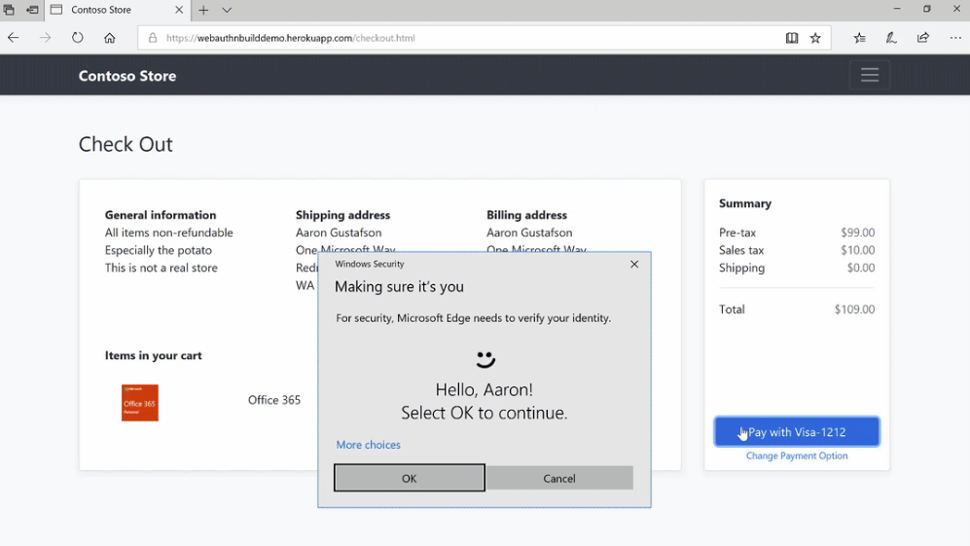Microsoft Edge will finally ditch passwords in favor of more secure biometrics
Functionality is in the preview build of the browser

Microsoft has announced that its Edge browser has moved into a world without passwords, allowing surfers to sign in using more secure means than a collection of (often badly chosen) typed characters – although only testers can currently access the feature in beta.
As the company notes in a blog post, with preview build 17723 of Windows 10, Edge now supports Web Authentication, meaning rather than tapping in passwords to access websites which require them, users can sign in and authenticate themselves with facial or fingerprint recognition via Windows Hello, or a special PIN number (or indeed using portable FIDO2 hardware – a dongle that you plug into the PC like Yubikey).
Superior support
Chrome and Firefox already offer such authenticators, so Edge is playing catch-up in this respect, although Microsoft asserts that its implementation for Web Authentication represents the most complete level of support available, and caters for a wider variety of authenticators than rival browsers.
Microsoft noted: “We’re working with industry partners on lighting up the first passwordless experiences around the web. At RSA 2018, we shared a sneak peak of how these APIs could be used to approve a payment on the web with your face. Passwordless authentication experiences like this are the foundation of a world without passwords.”
As mentioned, the feature is only available to those testing Windows 10 preview builds currently, but Edge should gain this capability when the next big update for the OS is released later this year.
- We've chosen the best laptops of 2018
Via Mashable
Get daily insight, inspiration and deals in your inbox
Sign up for breaking news, reviews, opinion, top tech deals, and more.
Darren is a freelancer writing news and features for TechRadar (and occasionally T3) across a broad range of computing topics including CPUs, GPUs, various other hardware, VPNs, antivirus and more. He has written about tech for the best part of three decades, and writes books in his spare time (his debut novel - 'I Know What You Did Last Supper' - was published by Hachette UK in 2013).